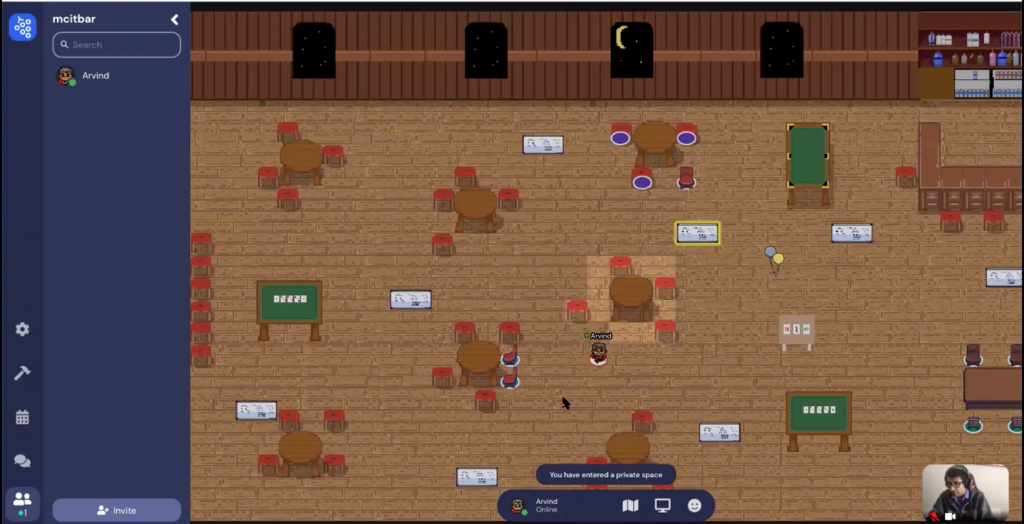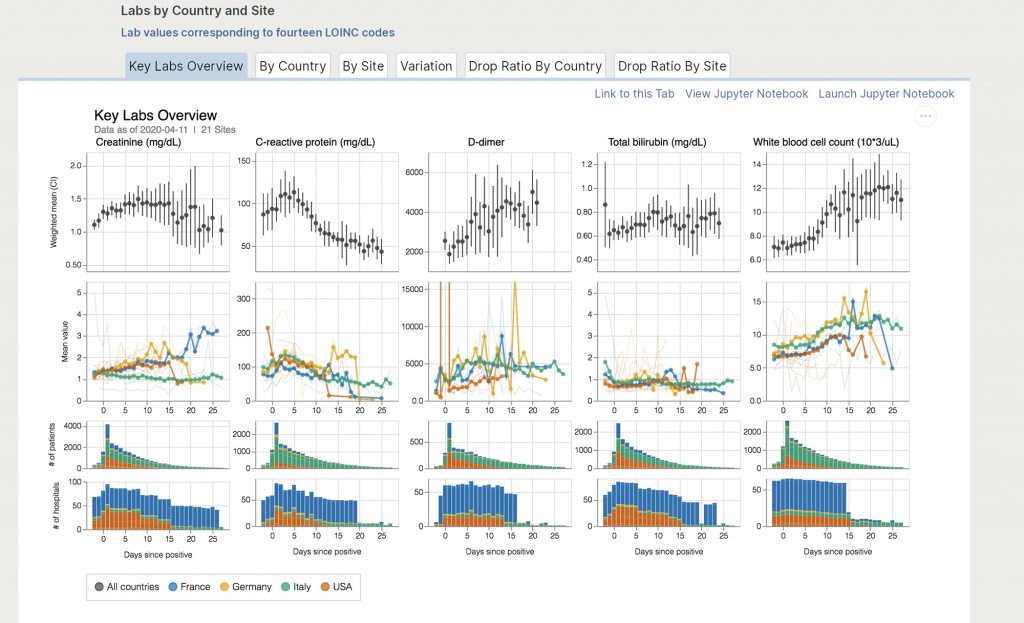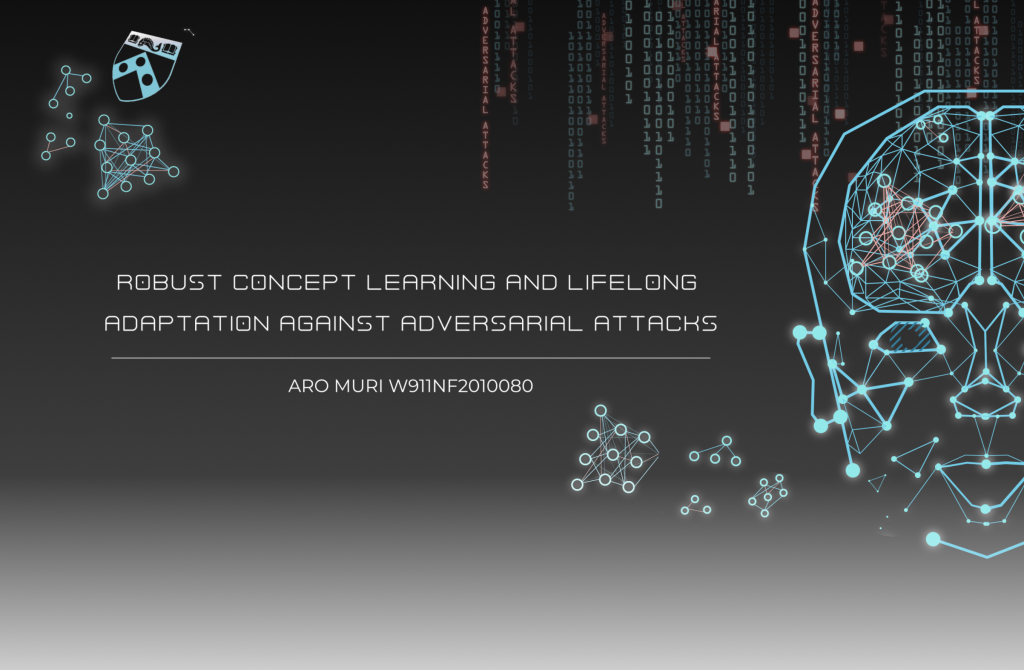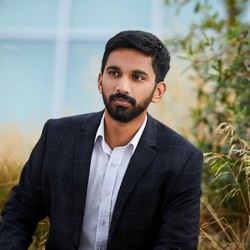
“What bar in the world has a bunch of nerds hanging out and doing stuff on whiteboards?” CIS Senior Lecturer and MCIT Director Arvind Bhusnurmath poses this as a rhetorical question.
The short answer is, one co-created by Bhusnurmath himself, and MCIT Program Coordinator Redian Furxhiu.
The MCIT Bar is a digital drink hole, of course, created within the CIS microcosm on the Gather.town platform. It features a snazzy night sky setting outside the windows (lest one need to comfort oneself for indulging in a 2PM e-drink) and program preset seating arrangements where each table serves as placings for private conversations.
While Bhusnurmath uses Gather.town primarily for office hours, the e-bar has allowed MCIT students and faculty to interact and socialize on a less regulated level. He believes that the student queue outside of his digital office doesn’t function as well as the real deal.
“The part that’s missing? I’m not sure if they’re talking to each other while in the line,” says Bhusnurmath of the usual hubbub and informal info passing that occurs during office hours.
So, the MCIT Bar provides a space where students and faculty can meet with the intent to connect socially over academic interests. Although whiteboard features like the one in Gather.town do exist on Zoom and other platforms, the one in Gather.town seems to encourage an easier flow of natural communication, that for Professor Arvind, more closely mimics the use of an actual whiteboard in an actual classroom.
The whiteboards, Bhusnurmath’s personal design addition, play a key part in the various events hosted at the bar, notably the MCIT 2021 Winter Hackathon that took place a few weeks ago.
“Students hung out, people presented their projects, we had like a little awards ceremony,” says Professor Arvind.
Prizes included an award for most complex, most creative, most beneficial to MCIT and an overall presentation winner.

MCIT has also hosted alum mock interviews at the bar, where alumni come visit and put MCIT students on the hypothetical spot.
Even with interactive game table features, where students and faculty can enjoy a game of poker or pool, Bhusnurmath isn’t certain how much extracurricular use the bar gets outside of specific department events. He notes one time he popped in to curiously observe.
“There were a bunch of the kids who were at a couple of those tables,” says Professor Arvind. “It was just cool to see that they seemed to be working together. I think the best thing we can do during this pandemic is to say that ‘these are the things that are there,’ if someone wants to use them, they can.”







